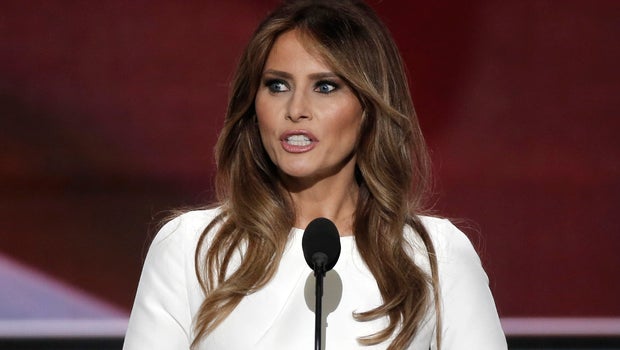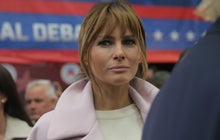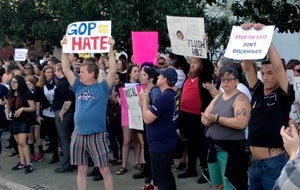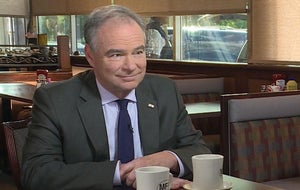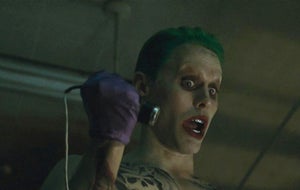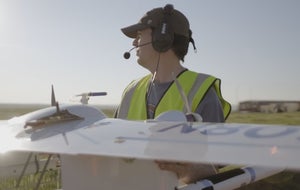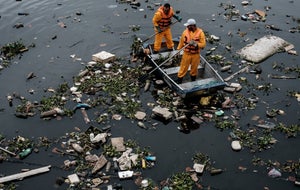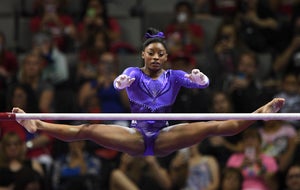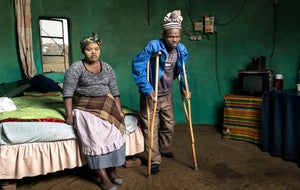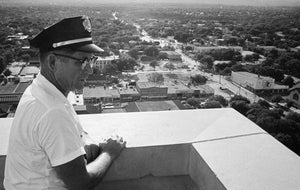WASHINGTON -- Melania Trump's former modeling agent says she obtained a work visa before she modeled professionally in the United States in the mid-1990s. Those comments came in response to questions about Mrs. Trump's own remarks that appeared inconsistent with U.S. immigration rules.
In an interview with The Associated Press, agent Paolo Zampolli offered the most detailed description yet of how the wife of the Republican presidential nominee came into the country.
Donald Trump's presidential campaign repeatedly declined to clarify her comments. The campaign also declined to discuss Mrs. Trump's immigration history in detail or provide copies of any paperwork that would put the issue to rest.
Donald Trump has made illegal immigration a signature plank in his campaign platform, and his wife has often cited her path to U.S. citizenship in defense of his hard line, saying she came to the U.S. legally and other aspiring Americans should follow her example.
Zampolli said that while he was a partner at modeling agency Metropolitan Models, he secured a work visa for Mrs. Trump, who in the mid-1990s was named Melania Knauss.
"I know she was not working a paid job before she got the H-1B," Zampolli said, referring to the type of work visa that U.S. companies can obtain for "fashion models of distinguished merit and ability." H-1B visas generally allow a person to work and live in the U.S. for three years with the opportunity to renew the visas for another three years.
Zampolli said he based the H-1B application on Mrs. Trump's previous modeling work in Paris and Milan. "We used whatever she did before to get her a visa," he said. "She had enough tear sheets to qualify."
In interviews earlier this year with MSNBC and for a profile in Harper's Bazaar, Mrs. Trump's comments appeared to be inconsistent with holding a work visa.
"I never thought to stay here without papers. I had a visa. I traveled every few months back to the country to Slovenia to stamp the visa," she said during the MSNBC interview.
U.S. immigration law did not require such trips that Mrs. Trump describes for work-visa holders at the time. People who hold visitor visas would be required to leave the country on or before the end date of their authorized stay. U.S. law does not allow someone to use a visitor visa to regularly live and work in the country.
Mrs. Trump published a statement on Twitter on Thursday, disputing that she violated immigration laws. "I have at all times been in full compliance with the immigration laws of this country. Period. Any allegation to the contrary is simply untrue," she wrote.
Mrs. Trump has said she came to the U.S. in 1996 on a visa, got her green card in 2001 and became a U.S. citizen in 2006, the year after she married Donald Trump.
In her statement, Mrs. Trump did not specify which visa she held during the early part of her modeling career in New York.
Zampolli said Thursday he believes Mrs. Trump was confused about her visa requirements, noting that she traveled to Slovenia to visit her family multiple times.
Zampolli said he was not aware whether Mrs. Trump ever held a different visa. He said it was possible she came to the U.S. on a visitor visa to check out the modeling agency, a practice he said was common when foreign models were considering making the jump to New York.
"They come to meet the client to see if they really should come to New York," he said, noting that the process often includes taking photos to build a portfolio to attract bigger-name modeling contracts.
In her statement, Mrs. Trump did not address reports in Bloomberg News, Politico and The Washington Post speculating whether nude photos taken of her in New York in 1995 were evidence that she had worked illegally in the U.S. before securing the appropriate visa.
U.S. law allows a person to use a visitor visa to conduct temporary business for a foreign company or explore a future career opportunities such as visiting modeling agencies or meeting with potential clients.
Zampolli, who didn't book the shoot, said the photos, which appeared in the French magazine Max, were likely a "free shoot to build the book of the model. She needed to get her tear sheets."
The AP left a phone message Thursday with the photographer who took the photos, but it was not immediately returned. The photographer, Jarl Ale de Basseville, told The Washington Post that Trump was not paid for the photo shoot.
